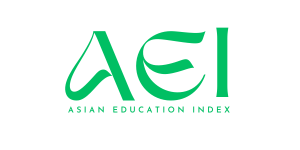The Value-Oriented And Competency-Based Approaches In Modern Education: Challenges
DOI:
https://doi.org/10.62480/jpip.2025.vol40.pp39-43Keywords:
education quality, competency, social responsibility, educational transformationAbstract
This article examines the competency-based and value-oriented approaches to education quality in the context of a consumer society. It explores the limitations of competency-based education, which primarily caters to immediate labor market demands, and highlights the necessity of a value-based framework that fosters creativity, personal growth, and social responsibility. The paper also discusses the role of innovative learning (IL) methodologies in transforming traditional education, emphasizing the need for flexible, individualized learning trajectories. By integrating theoretical insights with practical applications, the study underscores the significance of innovation in ensuring education quality, preparing students for dynamic socio-economic environments, and fostering a culture of continuous learning
References
Tugarikov V. P. Marxist philosophy and the problem of value // The problem of value in
philosophy. Moscow; Leningrad, 1966. Page 15.
Chesbrough G. Open innovations / trans. from English by V. N. Egorova. Moscow, 2007.
Dudchenko V. S. Innovative technologies. Moscow, 1996. Pages 42–43.
Dudchenko V. S. Innovative technologies. Moscow, 1996. Pages 15–16, 44–46.
Hegel G. V. F. Encyclopedia of philosophical sciences. Vol. 1. Science of logic. m., 1974. S. 228.
Minina V. N. Intra-university assessment and state regulation of the quality of higher
education: «Bologna» principles and Russian reality // European educational space and universities
of St. Petersburg. SPb, 2006. S. 66.
Kuznetsova N. I. Social experiment of Peter I and the formation of science in Russia //
Questions of philosophy. 1989. No. 3. S. 49-64.
Dmitrieva E. T. On some trends in the transformation of the Russian system of education.
Factors of success in the educational activities of the university / edited by Corresponding Member
of the Higher School of MaSh, Assoc. Prof. I. N. Zakharov. SPb, 2004. S. 24-39.
Downloads
Published
Issue
Section
License

This work is licensed under a Creative Commons Attribution-NonCommercial 4.0 International License.
User Rights
Under the Creative Commons Attribution-NonCommercial 4.0 International (CC-BY-NC), the author (s) and users are free to share (copy, distribute and transmit the contribution).
Rights of Authors
Authors retain the following rights:
1. Copyright and other proprietary rights relating to the article, such as patent rights,
2. the right to use the substance of the article in future works, including lectures and books,
3. the right to reproduce the article for own purposes, provided the copies are not offered for sale,
4. the right to self-archive the article.













